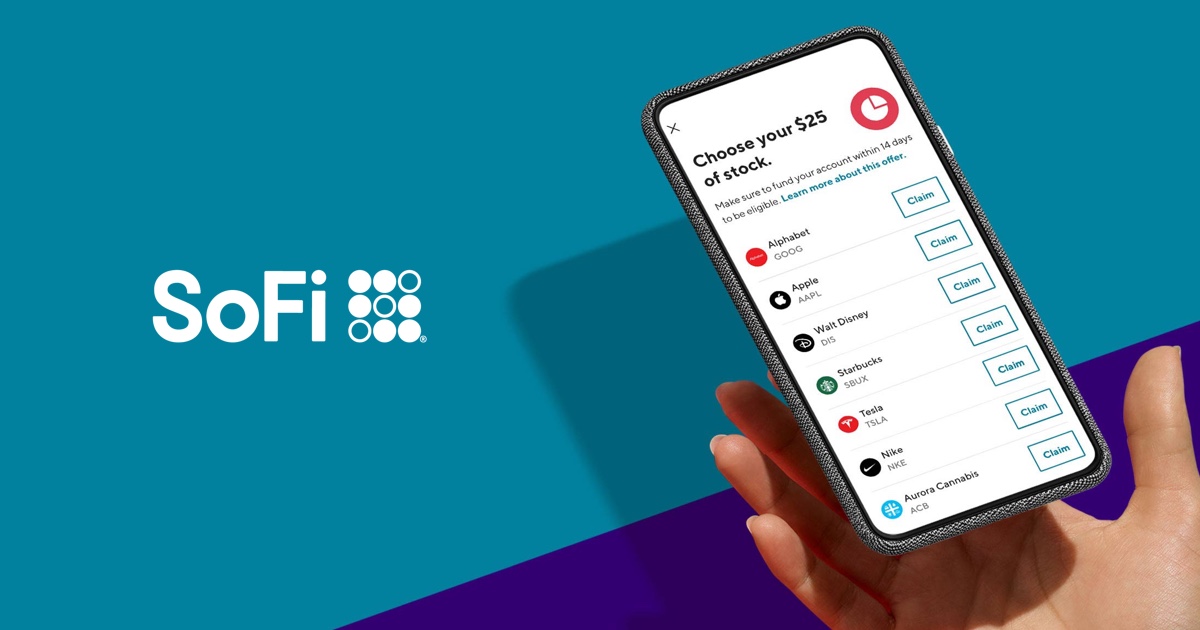What are the Best Ways to Save Money? Top 6 Money-Saving Strategies for Financial Security
Do you ever find yourself wondering where your hard-earned money disappeared to? Or perhaps you’re stuck in a never-ending cycle of financial stress, unsure of how to break free? In a world filled with enticing spending opportunities, it’s easy to let your money slip through your fingers. But fear not, because this article is here to help you unravel the secrets of financial success.
Before we dive into the best ways to save money, let’s first acknowledge the critical foundation upon which all savings strategies are built: financial awareness and commitment. How aware are you of your financial situation? Do you truly understand where your money goes each month? And perhaps most importantly, are you committed to making the necessary changes to secure your financial future?

Picture this: a life where unexpected expenses no longer send you into a panic, where you have the freedom to pursue your dreams without constantly worrying about your bank balance. This is the promise of financial security, and it’s within your reach. Saving money isn’t just about stashing away cash; it’s about creating a safety net that provides peace of mind and opens the door to a brighter future. But how do you get there?
Imagine having a financial ally that works tirelessly to build your wealth, regardless of your daily spending habits. That ally is systematic savings, and it’s a game-changer when it comes to achieving your financial goals. But how can you make your savings work for you automatically? What are the strategies that can help you grow your wealth effortlessly, month after month?
In the list that follow, we will explore the best ways to save money, from harnessing the power of automated savings to building long-term financial security through home equity. So, if you’re ready to take control of your financial future, keep reading. The journey to financial freedom begins here.
1. Automatic Savings
Automatic savings is like having a financial guardian angel that silently works to secure your future. It’s the key to financial success, offering a hassle-free way to build wealth. In this section, we’ll explore the ins and outs of automatic savings, revealing how it can transform your financial life.
Pulling savings off the top of your paycheck
Imagine if saving money could be as effortless as spending it. Automatic savings makes this dream a reality:
- Benefits of direct deposit into savings accounts: Direct deposit doesn’t just deposit your paycheck into your checking account; it can also funnel a portion directly into your savings. Discover the advantages of this seamless process.
- The effectiveness of regular and automatic retirement plan contributions: Planning for retirement is crucial, but are you saving enough? Learn how automatic contributions can boost your retirement savings and secure your financial future.
Avoiding the temptation to repurpose savings for other expenses
We’ve all faced moments when we’ve dipped into our savings for unexpected expenses or impulsive purchases. Automatic savings provides a buffer against such temptations. Discover strategies to safeguard your savings and ensure they’re available when you truly need them.
The long-term impact of consistent, automated savings
Consistency is the cornerstone of financial success. Automatic savings empower you to save consistently without any extra effort. Learn how the compounding effect of automated savings can grow your wealth significantly over time.
There’s also this great article about psychological reasons why automatic savings will help you save more. Check it out to read more about why automatic savings can be a game-changer when it comes to building financial security.
2. Home Equity as a Savings Strategy
Your home is more than just a place to live; it can also be a powerful tool for building long-term savings. In this section, we’ll uncover the remarkable world of home equity as a savings strategy. How can your home become your financial ally? Let’s dive in.
Building savings through home equity
Have you ever considered that your home could be a vehicle for growing your savings? Here’s how:
- Aggressive mortgage payment strategies: By making extra payments towards your mortgage principal or increasing your monthly mortgage payment, you can significantly reduce the interest you pay over the life of the loan. This not only shortens the time it takes to pay off your mortgage but also builds equity in your home faster. Learn how to implement these strategies effectively to boost your savings.
- The use of shorter mortgage terms for faster savings accumulation: Opting for a shorter mortgage term, such as 15 or 10 years, can save you a substantial amount of money on interest compared to a 30-year mortgage. Discover the advantages and potential challenges of shorter mortgage terms and how they can expedite your journey toward homeownership and savings.
How interest expenses decrease over time
Have you ever wondered why mortgage payments seem daunting at first but get easier over time? The answer lies in how mortgage interest is structured. At the start of your mortgage, a significant portion of your monthly payment goes toward interest, but as you pay down the principal, the interest portion decreases. This means that you’re effectively saving money by reducing interest expenses with each payment.
Owning your home as a significant savings milestone
Owning your home outright is a milestone that signifies not only a roof over your head but also substantial savings. When you no longer have a mortgage payment, you free up a significant portion of your monthly budget. This can be directed toward other financial goals, such as retirement savings, investments, or even that dream vacation you’ve always wanted.
3. Setting Goals for Home Ownership
Owning a home is a significant milestone for many, but it can also be a strategic move toward financial security and long-term wealth accumulation. In this section, we’ll delve into the art of setting and achieving goals for home ownership. We’ll not only explore the importance of planning to pay off your primary residence before retirement but also delve into the advantages of paying off your mortgage sooner and how home equity can be the key to unlocking your broader financial aspirations.

Planning to pay off the primary residence before retirement
Paying off your primary residence before you retire is a goal that can have profound financial implications. Let’s take a closer look at why this goal is crucial:
- Financial Security: Picture your retirement years without the burden of monthly mortgage payments. Paying off your primary residence ensures that a significant portion of your retirement income isn’t allocated to housing costs, providing a sense of financial security and stability.
- Reduced Stress: Beyond the financial benefits, imagine the peace of mind that comes with knowing your home is entirely yours, free from the looming presence of mortgage payments. It can significantly reduce stress levels during your retirement years.
Achieving this goal involves a combination of financial discipline and strategic planning. It means making consistent mortgage payments and potentially considering extra payments to expedite the process. Some homeowners even opt for bi-weekly payments, which can lead to an extra mortgage payment each year, effectively reducing the loan term.
The advantages of paying off your mortgage sooner
Paying off your mortgage ahead of schedule is more than just a financial goal; it’s a pathway to significant advantages:
- Interest Savings: Every extra payment made towards your mortgage principal reduces the overall interest you pay over the life of the loan. This can translate to substantial savings, potentially tens of thousands of dollars.
- Increased Equity: As you make extra payments or pay more than the required amount, you build home equity at an accelerated rate. Home equity is the difference between your home’s market value and the outstanding balance on your mortgage. This equity can be tapped into for other financial goals.
To achieve early mortgage payoff, consider these strategies:
- Make Extra Payments: Allocate additional funds to your mortgage principal whenever possible. You can do this on a monthly, quarterly, or annual basis, depending on your financial situation.
- Refinance to a Shorter Term: Explore the possibility of refinancing to a shorter-term mortgage with lower interest rates. While this may lead to higher monthly payments, it can significantly reduce the overall interest paid and shorten the loan term.
How home equity can facilitate the achievement of other financial goals
Your home equity is a versatile financial asset that can serve as a stepping stone towards various financial objectives:
- Funding Education: Whether it’s your children’s college tuition or your own pursuit of higher education, home equity can provide the necessary funds.
- Starting a Business: Entrepreneurs often tap into their home equity to secure capital for launching a business or investing in entrepreneurial ventures.
- Retirement Planning: As retirement approaches, many homeowners consider using their home equity to supplement their retirement income. This can be done through methods like a home equity line of credit (HELOC), where you have access to a line of credit secured by your home’s equity. According to the retirement demographics from Annuity.org, the average retirement age is around 62, so if you’re in your 30s or 40s you still have ample time to do the planning.
To tap into your home equity strategically, you have options:
- Home Equity Loans: These loans allow you to borrow a lump sum against your home’s equity, typically with a fixed interest rate. You receive the funds upfront and make regular payments.
- HELOC (Home Equity Line of Credit): A HELOC is a revolving line of credit that allows you to borrow against your home’s equity as needed, up to a predetermined limit. You only pay interest on the amount borrowed, making it a flexible option for various financial needs.
4. Investment Portfolios
Money sitting idle is like a dormant asset – it has potential, but it’s not actively working for you. Enter the world of investment portfolios, where your money can truly start to flourish. In this section, we’ll unveil the power of smart investments, tailored to your unique financial goals, and show you how diversification, clear investment goals, and the magic of compound growth can pave the way to long-term wealth.
Diversification for Risk Management
Investment portfolios are like a financial buffet, offering a variety of assets to choose from. But why should you care about diversification?
- How does diversification work? Diversification means spreading your investments across different asset classes like stocks, bonds, mutual funds, and real estate. It’s a bit like not putting all your eggs in one basket. When some assets perform well, they can offset the poor performance of others, reducing overall risk.
- Why is diversification crucial for growing wealth? By minimizing the impact of a single asset’s poor performance, diversification helps protect your investments from significant losses. It’s a key strategy to manage risk in your portfolio.
Setting Clear Investment Goals
Investing without clear goals is like embarking on a journey without a destination. How do you ensure your investment strategy aligns with your financial objectives?
- How do you define your investment goals? Start by identifying what you want to achieve, whether it’s a comfortable retirement, a second home, or funding your child’s education. Your goals will guide your investment decisions.
- Why are clear investment goals important? Setting clear, achievable goals ensures that your investment strategy is purposeful and focused. It helps you make informed decisions about asset allocation and risk tolerance.
Regular Contributions and Compound Growth
Investments grow best with regular attention and nurturing, much like a well-tended garden. What role do consistent contributions and compound growth play in growing your wealth?
- What are the benefits of regular investments? Making consistent contributions to your portfolio ensures that you’re continually putting your money to work. It also helps you take advantage of market fluctuations, potentially buying more shares when prices are low.
- How does compound growth amplify your returns? Compound growth is like a snowball effect. Your initial investments earn returns, and those returns generate additional returns. Over time, this compounding can significantly increase the value of your portfolio.
5. Tax Efficiency Strategies
Tax season may not be your favorite time of year, but what if we told you that you could legally reduce your tax burden and keep more of your hard-earned money? In this section, we’ll uncover the world of tax efficiency strategies and show you how to optimize your financial situation while staying within the bounds of the law.
Tax-Advantaged Savings Accounts
Tax-advantaged savings accounts are like financial secret weapons designed to help you save on taxes. But how exactly do they work, and how can you harness their tax benefits?
- How do tax-advantaged savings accounts work? These accounts, such as 401(k)s, IRAs, and HSAs, offer tax benefits to encourage saving for specific purposes like retirement or healthcare expenses. Contributions are often tax-deductible, and investment gains can grow tax-deferred or tax-free.
- How can you make the most of their tax benefits? Take advantage of employer-sponsored retirement plans like 401(k)s, contribute to IRAs (Traditional or Roth) based on your eligibility, and consider HSAs for healthcare savings. Understand the contribution limits, tax deductibility, and withdrawal rules associated with each account to optimize your tax savings.
Imagine you contribute to a Traditional 401(k) plan. Your contributions reduce your taxable income for the year, potentially putting you in a lower tax bracket. Plus, your investments grow tax-deferred until retirement, allowing your money to compound more effectively.

Tax-Efficient Investment Practices
You’ve built an investment portfolio to grow your wealth, but did you know that how you structure it can impact your tax liability? How can you minimize taxes on investment gains, dividends, and interest income?
- What are tax-efficient investment practices? Tax-efficient investing focuses on strategies to minimize the taxes you owe on your investments. It involves considerations like asset location (which assets to hold in taxable vs. tax-advantaged accounts) and tax-efficient fund selection.
- How can you minimize taxes on investment gains? Utilize tax-efficient investment vehicles, such as index funds or ETFs, which often generate fewer capital gains. Consider tax-loss harvesting to offset capital gains with capital losses.
Let’s say you invest in a tax-efficient index fund within your taxable brokerage account. These funds typically generate fewer capital gains because they have lower turnover. As a result, you’ll owe fewer taxes on your investment gains compared to actively managed funds.
Tax Planning and Deductions
The savvy use of tax planning, deductions, and credits can further reduce your tax burden. Are you aware of common deductions and credits that individuals often overlook?
- What is tax planning, and why is it important? Tax planning involves strategizing to legally minimize your tax liability. It includes timing income and deductions, optimizing the use of tax-advantaged accounts, and staying informed about tax law changes.
- What are some common deductions and credits? Common deductions include mortgage interest, state and local taxes, and charitable contributions. Credits like the Earned Income Tax Credit (EITC) and Child Tax Credit can significantly reduce your tax bill.
Suppose you’re aware of the Child Tax Credit. By understanding the eligibility criteria and ensuring you meet them, you can potentially receive a substantial tax credit for each qualifying child.
6. Smart Money Management
Budgeting and expense tracking aren’t just financial chores; they’re the keys to unlocking your financial potential. In this section, we’ll explore the art of smart money management – how effective budgeting and disciplined expense tracking can help you not only save money but also achieve broader financial goals. Let’s embark on this journey to take control of your financial destiny.
Building a Personal Budget
Creating a budget is like having a roadmap for your financial journey. But where do you start, and what are the essential elements to consider?
- How do you start a budget? Begin by listing your sources of income and categorizing your expenses, separating needs from wants. Don’t forget to include savings as a non-negotiable expense in your budget.
- What are the key elements of an effective budget? Your budget should be realistic, flexible, and reflective of your financial goals. It should also allow for unexpected expenses and adjustments as your circumstances change.
Let’s say you set a goal to save for a dream vacation. Your budget would include a dedicated line item for vacation savings, ensuring that you allocate a portion of your income toward this goal each month.
Expense Tracking for Financial Awareness
Expense tracking is the companion to your budget, providing you with a real-time snapshot of your financial habits. How can you track your expenses effectively, identify areas for improvement, and ensure that you stay within your budget?
- Why is expense tracking important? Expense tracking helps you understand where your money is going, pinpoint areas where you can cut costs, and stay accountable to your financial goals.
- What tools and strategies can make expense tracking easier and more effective? Today, there are various apps and software solutions that can streamline expense tracking. You can also use old-fashioned methods like keeping a spending journal or using envelopes for cash-based budgeting.
For example, you notice that a significant portion of your monthly expenses goes toward dining out. By tracking your expenses, you identify this pattern and decide to allocate a fixed dining-out budget, reducing this discretionary spending.
Achieving Broader Financial Goals
Budgeting and expense tracking are not just ends in themselves; they’re means to achieve broader financial objectives. How can you leverage these practices to pay off debt, boost your emergency fund, and invest more?
- How can effective budgeting help pay off debt? By allocating a portion of your budget to debt payments, you can accelerate your debt payoff and save money on interest.
- Why is an emergency fund crucial, and how can budgeting help build it? An emergency fund provides financial security in unexpected situations. A well-structured budget can designate a portion of your income to steadily grow your emergency fund.
- How does budgeting open doors to more significant investments? When you efficiently manage your expenses and create surplus funds in your budget, you can redirect those funds into investments, helping your money grow over time.
Like your credit card debt, your budget allows you to allocate extra funds toward paying off this debt faster. As you reduce your debt balance, you free up more money for savings and investments.
Conclusion
Throughout this article, we’ve talked about the importance of financial awareness, commitment, and systematic savings. We also learned the powerful impact of home equity, the art of setting goals for home ownership, and the potential for smart money management to transform your financial destiny. We pointed out the important things in the world of investment portfolios and tax efficiency strategies, demonstrating how these tools can help you grow your wealth while minimizing financial burdens.
Financial security isn’t just a goal; it’s a mindset. It’s about taking charge of your financial life, making informed decisions, and planning for both the expected and unexpected. It’s about creating a financial safety net that not only provides for your immediate needs but also paves the way for your dreams and aspirations.
Remember, your financial journey is unique, and the strategies you choose should align with your personal goals and circumstances. It may take time and effort, but every step you take toward financial security brings you closer to a life free from financial stress and filled with opportunities.
So, as you embark on this journey, armed with the knowledge and strategies presented here, we encourage you to stay committed, stay disciplined, and stay focused on your financial goals. You have the power to shape your financial future and create the life you desire. The path to financial security is yours to walk, and it starts with the first step.
Resources:

